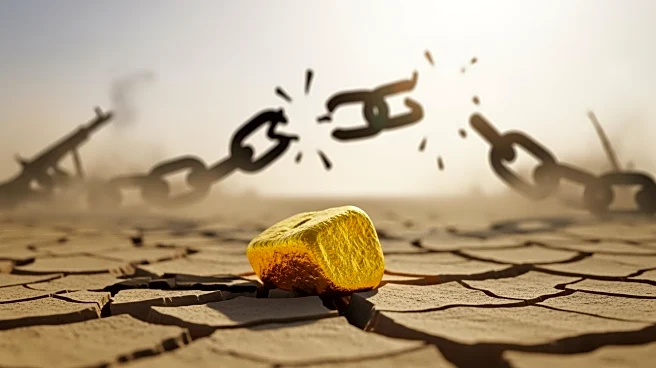What's Happening?
Sudan is experiencing a civil war fueled by a gold rush, with the precious metal playing a central role in funding the conflict. The war, which began in April 2023, involves rival factions vying for control
of the country's resources, particularly gold. The Rapid Support Forces (RSF), a paramilitary group, has seized control of key gold mines, using the revenue to finance their operations. The conflict has resulted in widespread atrocities, including mass killings and displacement, with over 12 million people affected. The gold is primarily smuggled to the United Arab Emirates, which serves as a major hub for African gold.
Why It's Important?
The situation in Sudan highlights the complex interplay between natural resources and conflict, with gold serving as both a catalyst and sustainer of violence. The humanitarian crisis resulting from the war is one of the largest globally, with millions facing acute hunger and displacement. The involvement of international actors, including the UAE, complicates efforts to resolve the conflict, as economic interests often overshadow humanitarian concerns. The US and other global powers face challenges in addressing the crisis, balancing diplomatic efforts with the need to curb resource-driven violence.
What's Next?
Efforts to broker peace in Sudan are ongoing, with the US leading diplomatic initiatives involving regional powers. The focus is on achieving a ceasefire and addressing the root causes of the conflict, including resource management and political reform. The international community may increase pressure on the UAE to halt its support for the RSF and promote stability in the region. Long-term solutions will require comprehensive strategies to manage Sudan's resources sustainably and equitably.
Beyond the Headlines
The Sudanese conflict underscores the ethical dilemmas associated with resource exploitation and the global demand for precious metals. It raises questions about the responsibility of consumer nations in perpetuating resource-driven conflicts and the need for transparent supply chains. The situation also highlights the importance of international cooperation in addressing complex humanitarian crises and promoting peace.









